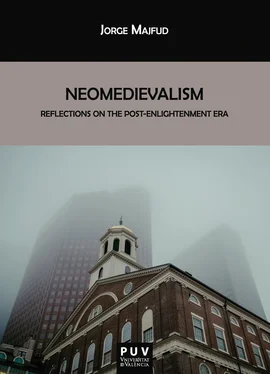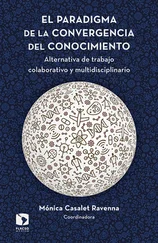I do not intend to propose Being and Nothingness by Sartre as a reading model, but I do recommend it at least as an intellectual exercise. The problem is that every day we have more writing to pay attention to. Almost all are distractions; nearly all are failed stimuli. We do not have more options than before; that is patently false. We just have more distractions and, consequently, more need to interrupt everything right after we start it.
But the day of every man and woman still has twenty-four hours. The same twenty-four hours a reader of Flaubert and Dostoyevsky, Kafka and Ernesto Sabato had. Therefore, we have the same time to deal with more things and get to the bottom of them.
I am afraid that this Jivaroan head-shrinking practice that affects literature is not due to the quality of the writings, but to the shortcomings of the new reader (apart from a blind pride and self-indulgency, almost always justified with the generational excuse that prevents them from expressing any self-criticism); not due to the art of synthesis but of mutilation.
I fear that this exercise of reduction will soon become an effort to stretch an idea down to 144 characters. Possibly just 10 or 20. Probably the New Thought movement could manage quite well with a couple of emoticons. :/
HUMANISM, THE WEST’S LAST GREAT UTOPIA
One of the characteristics of conservative thought throughout modern history has been to see the world as a collection of more or less independent, isolated, and incompatible compartments. In its discourse, this is simplified in a unique dividing line: God and the devil, us and them, the true men and the barbaric ones. In its practice, the old obsession with borders of every kind is repeated: political, geographic, social, class, gender, etc. These thick walls are raised with the successive accumulation of two parts fear and one part safety.
Translated into a postmodern language, this need for borders and shields is recycled and sold as micropolitics, which is to say, a fragmented thinking (propaganda) and a localist affirmation of social problems in opposition to a more global and structural vision of the Modern Era gone by.
These regions are mental, cultural, religious, economic and political, which is why they find themselves in conflict with humanistic principles that prescribe the recognition of diversity at the same time as an implicit equality on the deepest and most valuable level of the present chaos. On the basis of this implicit principle arose the aspiration to sovereignty of the states some centuries ago: even between two kings, there could be no submissive relationship; between two sovereigns there could only be agreements , not obedience . The wisdom of this principle was extended to the nations, taking written form in the first constitution of the United States. Recognizing common men and women as subjects of law (“ We the people …”) was the response to personal and class-based absolutisms, summed up in the outburst of Luis XIV, “ l’Etat c’est Moi .” Later, the humanist idealism of the first draft of that constitution was relativized, excluding the progressive utopia of abolishing slavery.
Conservative thought, on the other hand, traditionally has proceeded in an inverse form: if the regions are all different, then there are some that are better than others. This last observation would be acceptable for humanism if it did not contain explicitly one of the basic principles of conservative thought: our island, our bastion is always the best. Moreover: our region is the region chosen by God and, therefore, it should prevail at any price. We know it because our leaders receive in their dreams the divine word. Others, when they dream, are delirious.
Thus, the world is a permanent competition that translates into mutual threats and, finally, into war. The only option for the survival of the best, of the strongest, of the island chosen by God is to vanquish, annihilate the other. There is nothing strange in the fact that conservatives throughout the world define themselves as religious individuals and, at the same time, they are the principal defenders of weaponry, whether personal or governmental. It is, precisely, the only thing they tolerate about the State: the power to organize a great army in which to place all the honor of a nation. Health and education, in contrast, must be “personal responsibilities” and not a tax burden on the wealthiest. According to this logic, we owe our lives to the soldiers, not to the doctors, just like the workers owe their daily bread to the rich
At the same time that conservatives hate Darwin’s Theory of Evolution , they are radical partisans of the law of the survival of the fittest , not applied to all species but to men and women, to countries and societies of all kinds. What is more Darwinian than the roots of corporations and capitalism?
For the suspiciously celebrated professor of Harvard, Samuel Huntington, “imperialism is the logic and necessary consequence of universalism.” For us humanists, no: imperialism is just the arrogance of one region that imposes itself by force on the rest, it is the annihilation of that universality, it is the imposition of uniformity in the name of universality.
Humanist universality is something else: it is the progressive maturation of a consciousness of liberation from physical, moral and intellectual slavery, of both the oppressed and the oppressor in the final instant. And there can be no full consciousness if it is not global: one region is not liberated by oppressing the others, woman is not liberated by oppressing man, and so on. With a certain lucidity but without moral reaction, Huntington himself reminds us: “The West did not conquer the world through the superiority of its ideas, values or religion, but through its superiority in applying organized violence. Westerners tend to forget this fact, non-Westerners never forget it.”
Conservative thought also differs from progressive thought because of its conception of history: if for the one history is inevitably degraded (as in the ancient religious conception or in the conception of the five metals of Hesiod) for the other it is a process of advancement or of evolution. If for one we live in the best of all possible worlds, although always threatened by changes, for the other the world is far from being the image of paradise and justice, for which reason individual happiness is not possible in the midst of others’ pain.
For progressive humanism there are no healthy individuals in a sick society, just as there is no healthy society that includes sick individuals. A healthy man is not possible with a grave problem of the liver or in the heart, just like a healthy heart is not possible in a depressed or schizophrenic man. Although a rich man is defined by his difference from the poor, nobody is truly rich when surrounded by poverty.
Humanism, as we conceive of it here, is the integrative evolution of human consciousness that transcends cultural differences. The clash of civilizations , the wars stimulated by sectarian, tribal and nationalist interests can only be viewed as the defects of that geo-psychology.
Now, we should recognize that the magnificent paradox of humanism is double: 1) it consisted of a movement that in great measure arose from the Catholic religious orders of the 14 thcentury and later discovered a secular dimension of the human creature , and in addition 2) was a movement which in principle revalorized the dimension of man as an individual in order to achieve, in the 20 thcentury, the discovery of society in its fullest sense.
I refer, on this point, to the conception of the individual as opposed to individuality, to the alienation of man and woman in society. If the mystics of the 14 thcentury focused on their self as a form of liberation, the liberation movements of the 20 thcentury, although apparently failed, discovered that that attitude of the monastery was not moral from the moment it became selfish: one cannot be fully happy in a world filled with pain. Unless it is the happiness of the indifferent. But it is not due to some type of indifference toward another’s pain that morality of any kind is defined in any part of the world. Even monasteries and the most closed communities, traditionally have been given the luxury of separation from the sinful world thanks to subsidies and quotas that originated from the sweat of the brow of sinners. The Amish in the United States, for example, who today use horses so as not to contaminate themselves with the automotive industry, are surrounded by materials that have come to them, in one form or another, through a long mechanical process and often from the exploitation of their fellow man. We ourselves, who are scandalized by the exploitation of children in the textile mills of India or on plantations in Africa and Latin America, consume, in one form or another, those products. Orthopraxy would not eliminate the injustices of the world—according to our humanist vision—but we cannot renounce or distort that conscience in order to wash away our regrets. If we no longer expect that a redemptive revolution will change reality so that the latter then changes consciences, we must still try, nonetheless, not to lose collective and global conscience in order to sustain a progressive change, authored by nations and not by a small number of enlightened people.
Читать дальше












